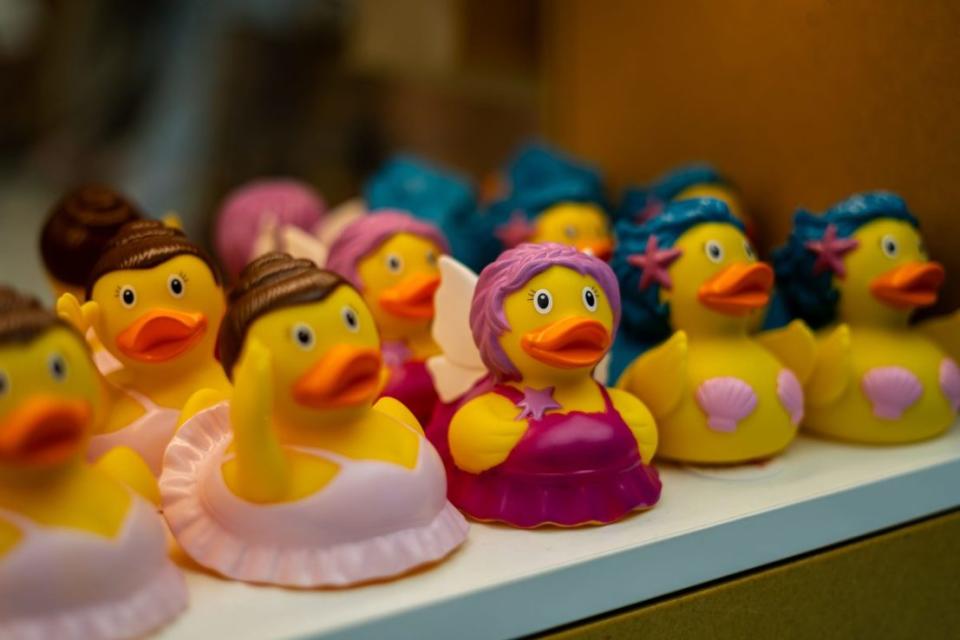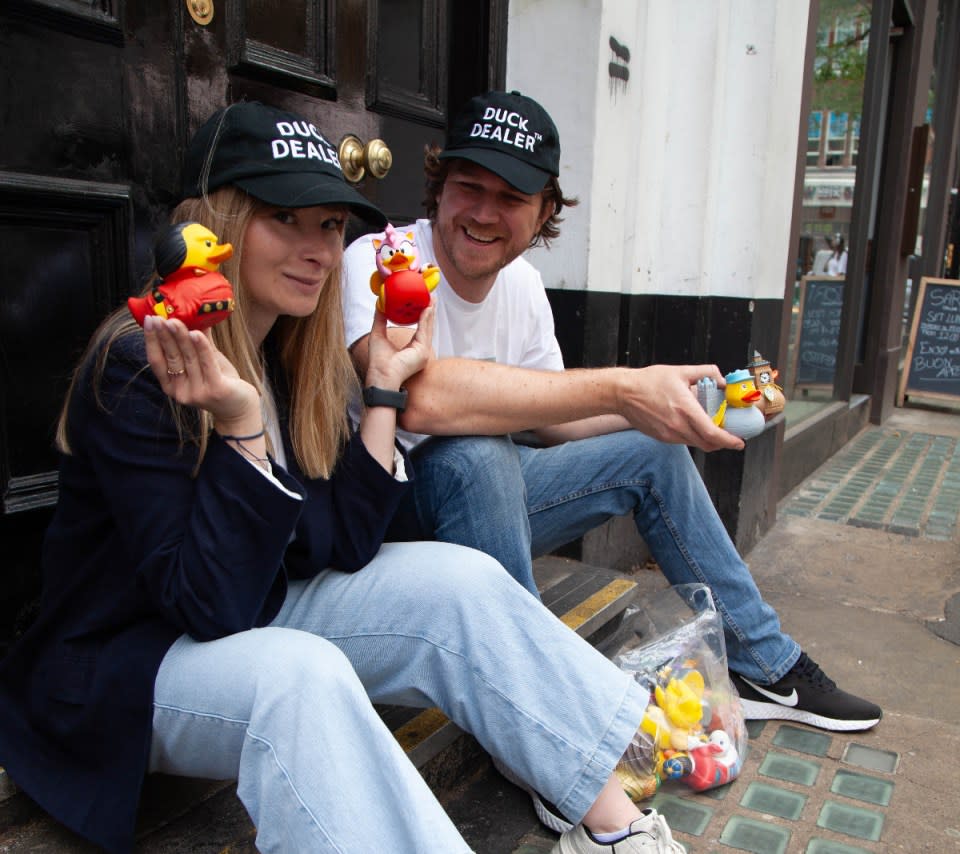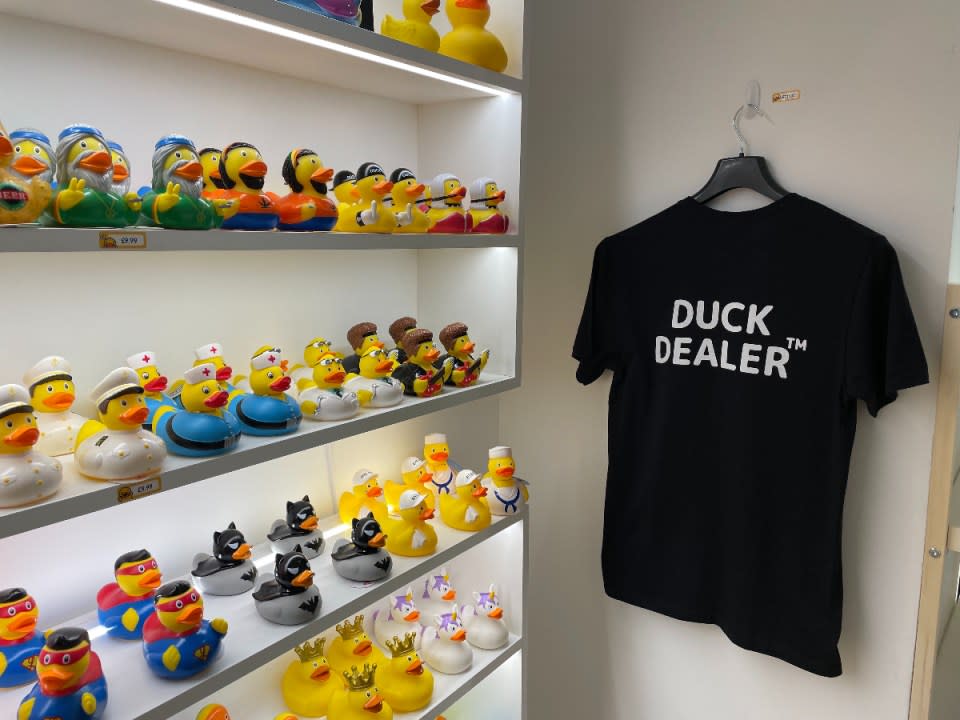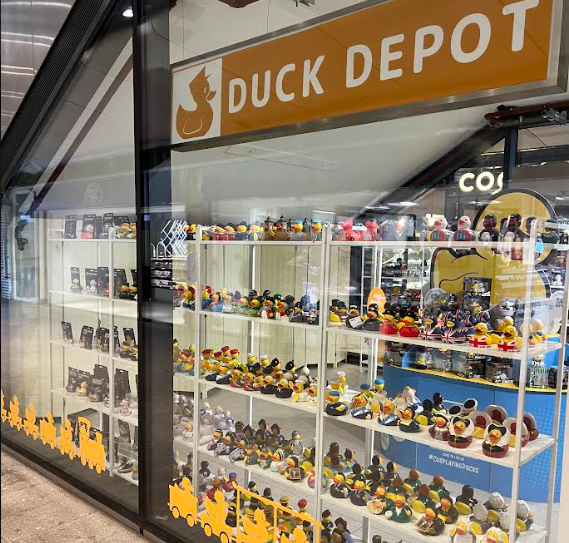
Against the backdrop of the ailing British retail sector, a chain of rubber duck shops in London is thriving. Anna Moloney investigates
If you work in the City, you may have recently been jolted out of the sleepy autopilot of your morning commute by the appearance of a new – and eye-catching – addition to Liverpool Street Station: Duck World. A shop dedicated solely to selling rubber ducks, which come in every size, pattern and type, but most importantly, one shape. I was engrossed in a news cycle telling me that London’s retail sector was in tatters, and I had questions.
You might think that these shops are of dubious origins, since many of their similarly colorful high street counterparts, the American Candy Shops, are associated with illegal activities. But perhaps the cynics will be surprised to learn that Duck World is actually a legitimate business. And it seems to be booming.
But how? I started researching and got straight to the top.
Meet Filip Perkon, a venture capitalist turned duck enthusiast who, along with business partner Irina Fedotova, launched this aquatic empire just over a year ago with the opening of the Duck World flagship store in Charing Cross. Twelve months later, the pair are now the UK’s biggest duck retailers, with ‘nests’ in Westfield White City, Liverpool Street and an upcoming pop-up in Victoria Station, where the bubble bath companions will sell for £500-£600 a pop.
So who buys these ducks? “I would say maybe 60 percent tourists, about 20 to 25 percent families and about 10 percent duck collectors,” Perkon tells me matter-of-factly. The remaining five percent is left to chance, and Perkon opens my eyes to a whole world of duck buyers I had never considered.




Last-minute gifts are a lucrative source – “We made a fortune on Valentine’s Day,” the saleswoman at the Liverpool Street branch tells me. Another promising part of the clientele appears to be tech bros who stand on programmers’ desks, alluding to “rubberducking,” a method of debugging code that involves explaining the problem to a rubber duck (though a senior quantum software engineer I consult tells me that real rubber ducks are not common office equipment). Cruise ship guests are also cited as moneymakers. Hiding rubber ducks on cruises is “a big cultural thing,” Perkon informs me, and there are estimated to be around 1,000 rubber ducks on board every major cruise ship in the world.
Like a duck at the fair, I was addicted.
Still, Perkon says it’s a tough time for retail, with rents soaring, costs rising and consumers strapped for cash. Competition for space is also fierce, with only about three or four London streets considered profitable. “The high streets of Kensington, Chiswick and even Shoreditch are ghost towns,” he says. With most retailers now forced to operate on incredibly thin margins, he warns that any additional tax will ruin the majority of UK business.
“We’re doing OK though,” he says, as the store’s quirky concept and Instagrammable facades fit the experiential retail trend that’s seen as crucial to the future success of brick-and-mortar stores. Many of Duck World’s salespeople are out-of-work actors, while the Charing Cross store hosts a guest artist several times a week and customers can decorate their ducks however they like. “We see the store as a kind of stage,” says Perkon, who has a background in the entertainment industry.
Still, making a profit from rubber ducks in this economy will be no easy feat. “I’m worried,” retail analyst Jonathan De Mello tells me with a touch of melancholy, “I don’t think they’re going to be sustainable in the long term.” I lose face. I tell him urgently about the coders and the cruisers and the gifts and the duck collectors – but he won’t be persuaded.
“They will have to sell these ducks in extremely large quantities to pay the rent,” he complains. “How will they survive without money laundering?”


It’s a sad record for De Mello, but a quick glance at the Duck Depot in Liverpool Street gave me hope. Many a hurried commuter was stopped in their tracks by the shop’s cheery display windows, just as Perkon had predicted. A fair number went in with their wallets open. Some, no joke, smiled. And indeed, the City outpost, originally planned as a week-long venture, is still there now, six months later, because it has flourished so much.
Given all these obstacles, I ask Perkon why he does this. “You have to do something,” he says. Exactly.

